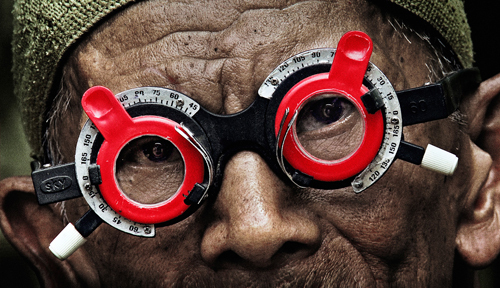Nearly fifty years ago the United States supported the Indonesian coup that toppled the Sukarno government, the first President of Indonesia, who'd led the country's efforts to secure independence from the three hundred year colonial grip of the Netherlands.
One of his generals, Suharto, replaced him, thus beginning a 31-year reign marked by a shift toward alliance with the West and virulent anti-Communist pogroms that resulted in the murder of an estimated 1.5 million people.
Under the guise of rooting out alleged Communists, Suharto unleashed a ruthless paramilitary killing machine on anyone his regime deemed to be a threat to its bloodthirsty power grab. Citing a national emergency, these murderous thugs targeted trade unionists, students, teachers, leaders of farm cooperatives and ethnic Chinese. This reign of terror was often conducted stealthily in the middle of the night. Victims were grabbed from their beds, trucked to a killing field, executed and buried in unmarked graves or thrown into a river. Their families were never told what happened or why.
The brutality of the military regime stifled dissent and made people afraid to speak up or even to mention what had happened to them and their loved ones. Adi Rukun was different. He wanted to find the men who murdered his brother Ramli and left the body in the middle of a palm oil plantation as a warning to the village.
Adi was tired of hearing how his children were being taught that the mass murder and torture was the victims' fault. He wanted them to know the truth and to put his mother's grief to rest.
Adi recently told me that his mother, Rohani, would recount the details of her son's life and death every day because she didn't want him to be forgotten.
He enlisted the help of filmmaker Joshua Oppenheimer whose film about the Indonesian genocide, "The Act of Killing," hadn't been released. Oppenheimer knew they had a narrow window to do this because after his film was released the perpetrators would close ranks and it would be impossible to do a film with Adi. Even then, this would be extremely dangerous. He reluctantly agreed to help Adi because they both believed that confronting the perpetrators while they were still alive and in power would help break the silence and bring closure to survivors like Adi's mother.
The result is a courageous film that follows Adi into the homes of the people who, after killing his older brother and countless others, have been lionized as heroes.
The film has been nominated for an Academy Award in the Documentary Feature category. It's the first film from Indonesia to be nominated for an Academy Award.
Adi's been reassured that his mother's village will be able to watch the ceremony. But win or lose, he said, his mother knows her son will not be forgotten. To her, that's what's important.

